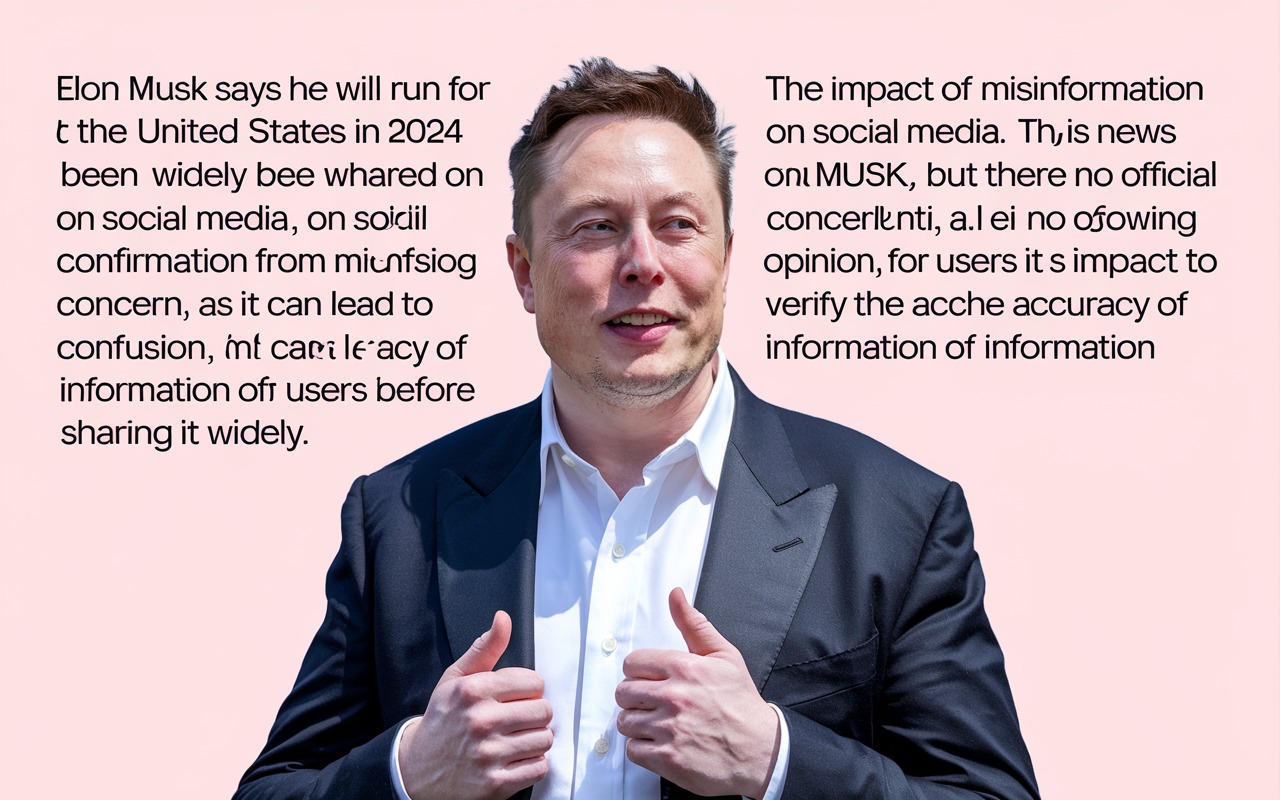Elon Musk's Controversial Election Claims: A Closer Look 👀
In the rapidly evolving landscape of social media and politics, few figures capture public attention quite like Elon Musk. The recent analysis by the Center for Countering Digital Hate (CCDH) reveals just how far-reaching the implications of Musk's statements can be. 🚀
According to the CCDH's findings, Musk's false and misleading election claims on X (formerly Twitter) have garnered a staggering 2 billion views! This alarming statistic sparks significant conversations about the integrity of information shared on social media platforms, particularly when influential figures are involved. 🤯
What’s Going On?
In 2024, Musk posted at least 87 misleading claims regarding the U.S. election, many of which were flagged as false by fact-checkers. These posts weren't just benign; they represent a strategic use of his platform to amplify certain narratives favorable to former President Donald Trump. 🗳️
The analysis showed that Musk’s influence isn’t merely due to his vast follower count of 203 million; he's reportedly made tweaks to X’s algorithm to ensure his posts reach a broader audience. This, coupled with his recent political campaign contributions totaling $118 million to a super PAC supporting Trump, highlights a concerning merger of tech influence and political strategy. 💼
The Tactics Used
Musk's posts have been known to contain incendiary claims about voter fraud and malicious activities allegedly supported by the Democratic Party. For instance, he claimed that there have been “triple-digit increases of illegals in swing states” and asserted that Democrats would ban voter ID nationwide. The reach of these posts is astounding, with one claim alone attracting over 21 million views. 📈
What’s critical to note here is that such claims often lack substantial evidence. Experts have consistently pointed out that voter fraud is extremely rare in the U.S. due to stringent verification processes. 🔍
The Bigger Picture
Imran Ahmed, CEO of CCDH, stated that X has “devolved into a hellscape of hate and disinformation” since Musk's acquisition. This raises essential questions about the responsibility of social media platforms to guard against misinformation, especially from prominent figures who enjoy considerable sway over public opinion. ⚠️
Musk has faced criticism for targeting organizations that call out misinformation, referring to CCDH as a "criminal organization." This antagonistic approach towards accountability may further encourage a culture where misinformation flourishes unchecked. 😡
Conclusion: Where Do We Go from Here? 🧭
As we approach election season, the stakes couldn’t be higher. The smartphone in your pocket has become a powerful tool that can either educate or mislead. 🤔 It serves us all to critically evaluate the sources of our news and hold powerful figures accountable for their words and actions.
In conclusion, the realm of social media continues to blur the lines between fact and fiction, and it's more crucial than ever to stay informed and vigilant against misleading claims. 🌐
What are your thoughts on Musk’s influence on social media? Could there be better ways for platforms to manage misinformation? Share your insights below! 👇
Let’s get the conversation going! 🤝
#ElonMusk #Disinformation #USPolitics #SocialMediaMatters

More Stories
Meta’s AR Ambitions and AI Safety: Insights from the Equity Podcast
Insight Partners Data Breach: A Wake-Up Call for Cybersecurity Awareness
Lovable’s Ascendancy: Anton Osika at TechCrunch Disrupt 2025